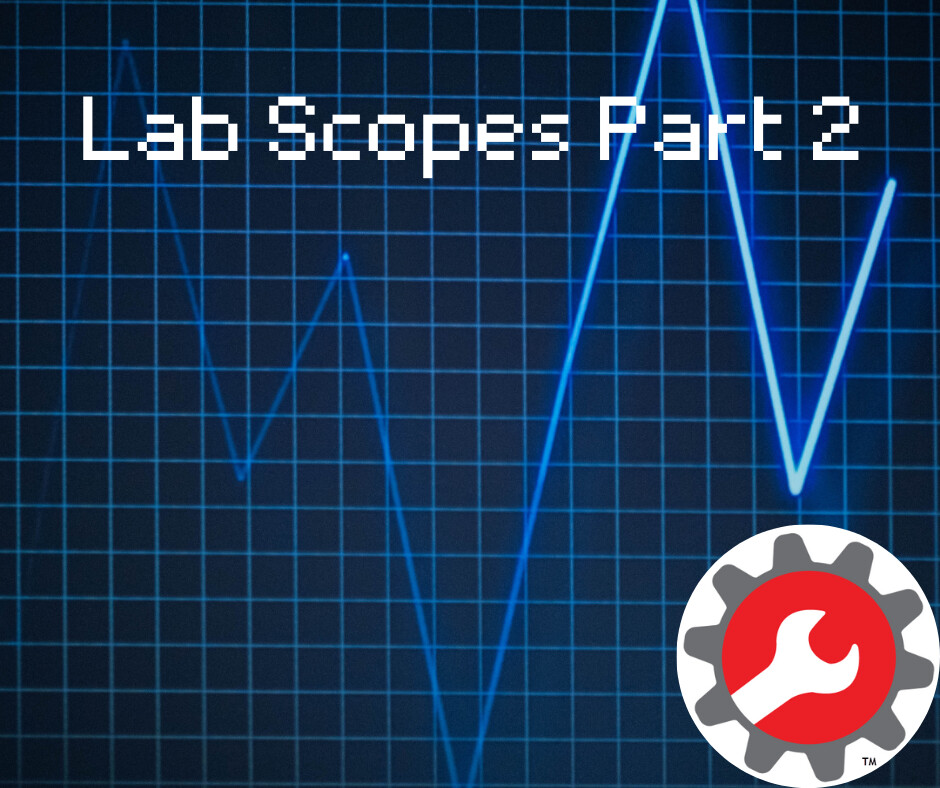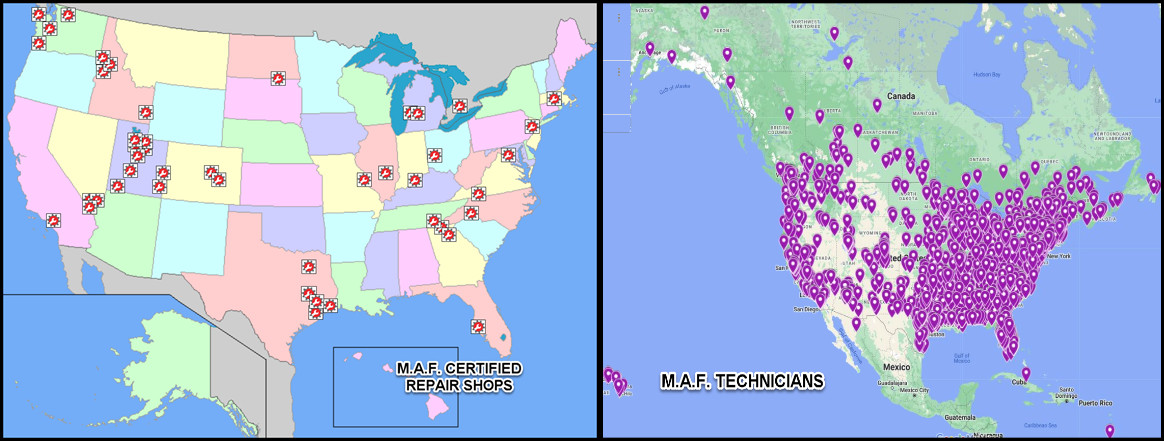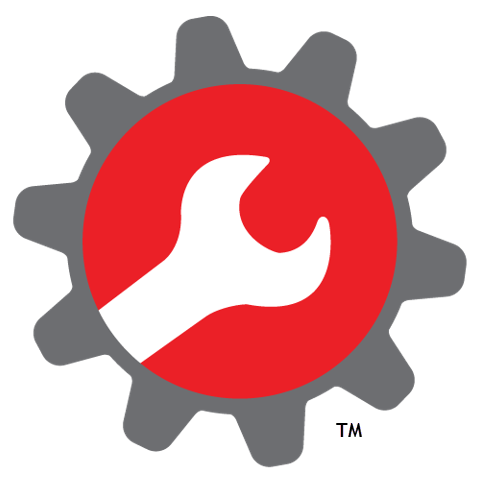
Unlock your box, Start YOUR scope Part 2
Written by Aaron Marion
If you missed part 1 see it Here.
This does contain affiliate links.
Did anyone catch the foreshadowing in the title? YOUR scope. This is the cross I’m going to nail myself to and encourage everyone that’s serious to have their own lab scope. A very good trainer once said “Start your scope before you start the coffee pot.”
Before you start down the too expensive trail, you can pick up the AES Wave uScope is $184 or the Hantek 2C42 for $124.99 on Amazon, prices are as of the writing of this post. It’s an incredible tool and you probably have a single ratchet in your giant tool box that costs more than that. There’s absolutely nothing wrong with shop use tools. If your shop has a scope and you can easily use it, by all means, use the heck out of it. It’s just not the industry standard, you’ll find more shops without a scope than with. And a lot of the shops who boast having one, have a Snap On or Autel Scan tool with a scope built in and the leads are still in the box. I hate to generalize but those shops are also usually looking for a diagnostic tech. That shop tool is being used as a code reader for every tech there, and taking the shop tool for yourself to learn on may provide some friction. Your scope can go home with you, (uScope or the Hantek can go home in your shirt pocket, but don’t let it wind up in the washing machine, ask me how I know...) Your scope will also go with you should you need to #rollthatbox. Your new boss should show his appreciation for your tools with money.
So for this portion I want to discuss some tool choices. We’re gonna run the gambit but the key takeaway is that it’s the user, not the tool, that really matters. A savvy scope user and an inexpensive scope can accomplish more than a novice with the most expensive tools money can buy. I see posts on all of the message boards and forums asking about which scope to buy so we’re going to try and knock out some of the heavy hitters. This is by no means all encompassing, if you have had a good experience with something I missed, throw it in the comments, help us all! These tools are going to be listed in ascending price order, I’m not a paid representative of any brand and this article is my own opinions.
uScope $184. AES wave is legendary for their customer service. This is pretty much the best bang for your buck. Great support, lots of free education on this tool, lots of good features. It’s an All in one unit, small screen, great presents, great software. Takes a specialized input that required adapters. 1 channel.
Autel Maxiscope canbe had for around $400. Autel is one of the big hitters in the aftermarket scan tool world. Their scope is a fantastic buy. I would recommend a USA seller that offers support, but I recognize the desire to save a dollar. You do You. This scope isn’t all in one, it requires a laptop, or an Autel Scan tool to run. It’s a 4 channel, has lots of great automotive features, 4 channels, uses BNC leads. If you need more than one channel, the Maxiscope is the best bang for your buck.
USED TOOLS
I put that in all caps because it’s often overlooked for prospective buyers. A used, out of date Snap On Modis, or Vantage can be had on ebay for a few hundred bucks. We will get into the meat and potatoes of Snap On Scopes later but don’t forget to shop for used deals. Scopes don’t really need updating, I’ve seen 4 channel Modis Scan tools with all the scope leads for $200 on ebay, that’s a lot of scope for the money.
MICSIG ATO series from around $800 for the 4 channel version. I’ve never personally used but comes highly recommended form some techs I know and trust. It’s an all in one unit as well.
Snap-On. We’re not going to debate if Snap-On tools are a good buy or not. They are not a budget option unless you find one used. Snap On does offer financing. Personal financial choices aren’t what I’m here to advise you on. I’ve owned 2 Snap-On 2 channel scope/scanners. I use one of them frequently. The all in one features are nice. The guided component tests are nice. Their scopes leave a lot to be desired when compared to other models that are less expensive, but if you already have one, or work at a shop that has one, by all means get after it and use that thing! I’ve made plenty of money diagnosing with a Snap On scope. I’m also a fan of the free Shop Stream Connect software that allows users to review their scope data on a PC and save for later reference with ease. It’s a nice feature. For an all in one tool, you can do a lot with a snap on. You can probably do more with less money from a different source, but the ability to finance tools has really helped me in my career. The amount of free training that Snap On produces is also valuable. If you have a Snap On scope and don’t know how to use it, you need to figure out what YouTube is.
Matco. Disclaimer, I’ve never used a Matco scope, I don’t have any close friends using them either. They’re an expensive add on to an expensive scan tool. You need a Matco Scanner to use the Matco Scope. If anyone is using one and likes it please give us some info.
TOPDON. Disclaimer, I’ve never used the TOPDON scope, but I do LOVE my TOPDON scan tool, and their customer support has been stellar. I would love some hands on time with their higher end tools to form an opinion on (are you reading this TOPDON?) But they have Scope offerings with their higher end tools.
ATS eScope. Now we’re getting into high end options. ATS Makes some fantastic tools. I don’t own an ATS Scope but I wish I did. Prices vary by vendors but we’re talking about spending around $2600 for a 4 channel, more for an 8. You’ll still need a computer to run this scope. Lots of power user features and built in software. Bernie Thompson is one of the smartest diagnosticians I’ve ever met, he has some great videos using his ATS Tools.
Picoscope. My personal choice. If you’re looking at spending this kind of money I can tell you it IS worth it. I use an Autel maxiscope, and a Snap On a lot, and if it’s not just a quick check, I’m wanting my pico. Great support, ease of use is high, free training resources are readily available. The fine print upgraded features are worth the read if you’re in the market. Smarter people than me have discussed them in greater detail. It’s REALLY hard to beat a picoscope if the cost is removed from the equations. But even when spending a few thousand dollars on a tool, you’ll make that back ten fold when you can use it. If you’re in the high end scope market, you’re probably going to do some of your own research and make the choice that is right for you. If you’re a young tech or new to diagnostic work, don’t be afraid of the Pico. You don’t NEED a pico but you don’t NEED to start with a basic scope either. Pico’s guided tests will get you a long way. Ease of use will remove some of the early learning frustrations. And Pico is easy to use.
Now I’m sure I missed some options and there are definitely different opinions and things to consider. Don’t consider this an end all be all guide to scope buying. I just wanted to answer some of the common questions I see out there and Give you some keywords to search as you do your own research. Whatever you land on, learning how to use it is the most important feature. The best tool is the one that you’re proficient at. Stay tuned for Part 3, we will be talking about some learning resources. Scope Classes offered by Mechanic Alliance, and even a few quick tests that you can do with a scope to get in the habit of using it. **SPOILER ALERT A Mechanics Alliance Waveform Database is in the works. Bug your favorite admin for the details
JOIN https://mechanicalliance.com/ TODAY!

Today we are talking about the automotive lab scope. If you’re brand new to the auto repair business, welcome, this article is for you. If you’re a veteran pico guru with terabytes of known goods, (send them to me) and welcome, this article is for you. I can take the liberty of speaking for the rest of the Mechanic Alliance crew, and tell you that we are advocates of Lab Scope usage. In my opinion there is not another single tool that will increase your understanding of a system and how it’s working. I don’t claim to be the Michael Jordan of the Picoscope, and within the Mechanic Alliance members we have some very advanced users. I can however tell you that owning my own scopes, and understanding their use has propelled my pay forward more than the speed of my 20’s ever could have.
First let’s address the naysayers.
Scopes are a waste of time, I’m old school and never needed it. (says the guy who only hangs suspension parts)
If you really know how to diagnose, you don’t need a scope. (says the guy who shotguns parts when swapnostics don’t work and is wrong half the time)
Scopes are too expensive, Snap On charges $10,000 for one. (please don’t feel like you need the latest and greatest snap on scan tool to be proficient with a scope)
I’m flat rate, I don’t have time to get good at using a scope (your first clutch, or head gasket, or basically anything wasn’t 175% efficient. Practice)
I don’t have anyone to teach me (Mechanic Alliance can and will teach you)
These are things that I have personally heard over the years, and even believed some of them for a while. Then I saw the light. I must sincerely thank Paul Danner (maybe he’ll read this) for exposing me to the world of lab scopes. I worked at a dealership for years and we had one, in the foreman’s office, in a box. I rarely used it and it stunted my growth. When I decided I wanted to get serious about diagnostics I bought my first scope. I remember the first time I actually needed it. It was a LIN BUS version and I needed to verify the signal at several points. My AES Wave uScope, I was so proud of it.
But why? What are all those squiggly lines actually gonna do?
If you ever have the chance to attend any formal diagnostic training you’re going to hear your trainers tell you that understanding how the system works is the most crucial step. The lab scope SHOWS you how it’s working. When you understand what is supposed to happen, and can measure what is actually happening, with a visual representation, you will have a large portion of what you need to diagnose anything. You will also be able to back up your diagnosis with real data. Actual facts. Savable, shareable, repeatable data. That is what separates you from your peers. That is what shop owners are willing to pay a premium for. I am often asked to assist with interview processes, my go to question for every level of tech is “how comfortable are you with lab scope use”. I have yet to have someone say that they are even moderately experienced.
I recently had a chance to attend a conference attended by hundreds of shop owners. I spoke to several and there was one thing that most of them had in common, not enough techs. As I dug deeper into conversation with them, the truth was, there are not enough techs with diagnostic abilities, or diagnostic tools. Every shop owner I spoke with was willing to pay or was already paying the top levels in our industry. I heard $65 per flat rate hour, IN THE MIDWEST!.
But what does this mean for you? How can using a scope benefit you? This is a pretty large topic and we will get more in depth in parts 2 and 3, but at the end of the day, being proficient with a scope makes you better at your job. You’ll be able to diagnose faster and more accurately, you’ll be able to document your findings, even share your findings with your peers here at Mechanic Alliance if you need some help interpreting the data, and you’ll make more money.
People who are good at their jobs will make more money and have better days. As a young private in the Army I was told that the easiest way to have a good time in the Army is by being good at your job. It holds true for auto repair as well. Stay Tuned for part 2 and 3, and keep your ears and eyes peeled for the Mechanic Alliance Lab Scope Classes that are coming soon!
Lab scopes range from simple entry level units like this one from Hantek https://amzn.to/3H5aRD0 to a unit like the Micsig with https://amzn.to/3H5aRD0 more features and abilities. No matter what your budget is, there is a way to get involved with the world of Lab Scopes.
JOIN https://mechanicalliance.com/ TODAY!














